Everything women travelers in Indonesia need to know about health, romance, women’s rights and safety.
All the information below is provided by Pink Pangea community members based on their experiences abroad. Add your voice!
Health
Feminine Hygienic Products
Anna says: It’s somewhat difficult but not impossible to find tampons in larger cities. Check out pharmacy chains like Guardian and Century. The boxes (Playtex usually) are small and a bit pricey, though. I generally pay Rp30.000 to Rp50.000 for eight tampons in Palembang, about $3 to $5 and I’ve heard higher prices for the same number in other cities.
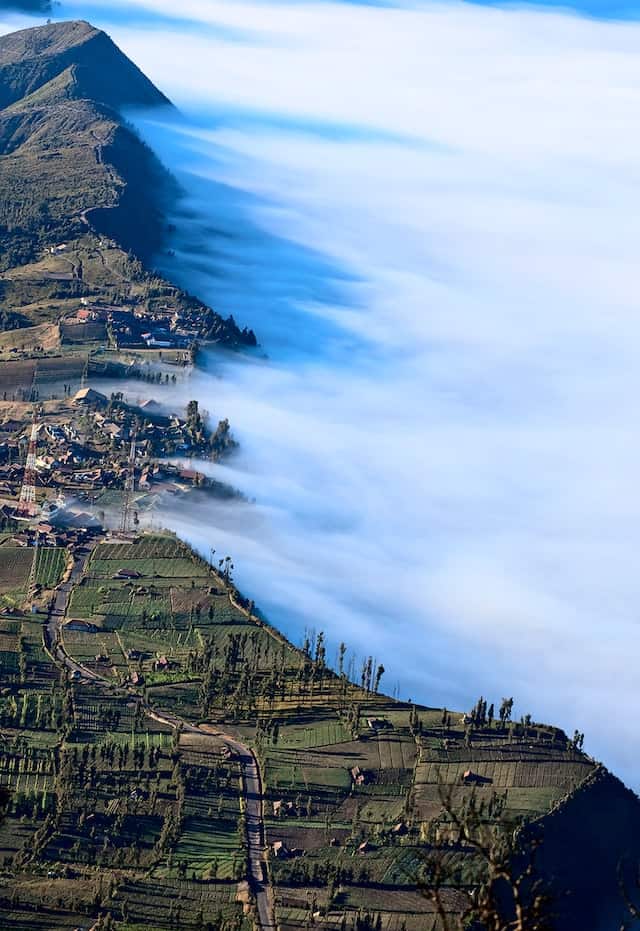
Otherwise, though, if you’re not in a big city, pads and pantyliners can be found everywhere, convenience stores,pharmacies, groceries, and supermarkets, and are very cheap- a couple of dollars for a dozen or more.
Winona says: Pads are about all you’re going to find in Yogyakarta but they’re easily accessible at any convenience, grocery, or general store and there is a pretty decent variety.
Birth Control
Anna says: Condoms are available everywhere at supermarkets and convenience stores (there are durian-flavored ones if you’re feeling adventurous).
I’ve heard, through expat forums, that birth control pills are available even over-the-counter in pharmacies, but I wouldn’t bet on it, especially for unmarried women. Probably best to bring a large supply if you’re on the pill.
Winona says: Bring it with you if possible. Supposedly birth control is only legal if you’re married. I know you can buy condoms at Indomarts and other convenience stores, but there’s not much variety and they’re expensive.
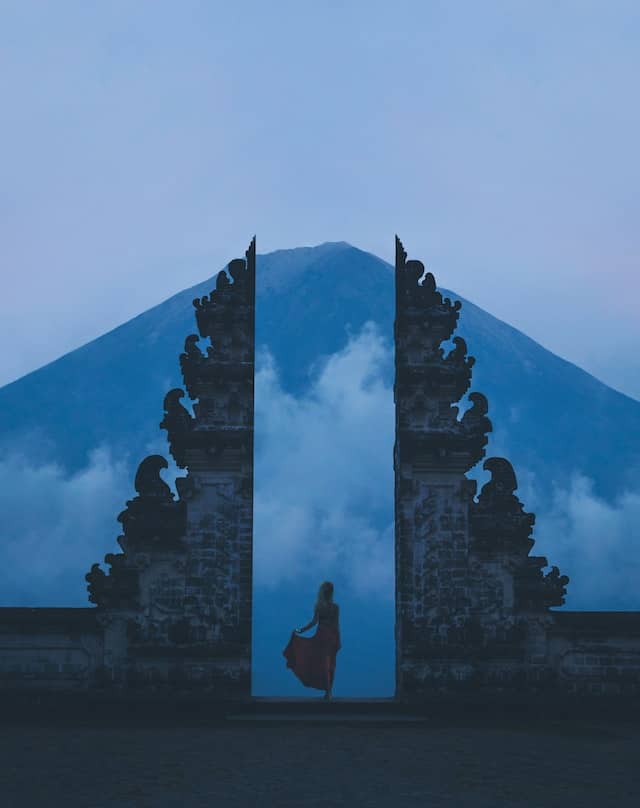
Recommended Gynecologists and Doctors
Anna says: I’ve never been to one here, so I wouldn’t know! Health care as a whole varies widely. Doctors tend to prescribe a lot of medicine, maybe a bit unnecessarily, to my mind. You should be very aware of what is considered a “good hospital” or “good clinic” wherever you go in Indonesia.
It is very cheap, though, to go to the hospital or clinic. I’ve never paid over twenty dollars for anything, even for stitches and antibiotics.
Winona says: I haven’t had any experience with gynecologists or doctors yet.
Breastfeeding
Anna says: I wouldn’t breastfeed in public, but women have been pretty relaxed about breastfeeding in front of a group of just women.
Romance
Dating Locals
Anna says: I’ve known of a quite a few mixed Indonesian-foreign, even mixed-religion couples, and interestingly, it’s fairly evenly split between foreign woman-Indonesian man and foreign man-Indonesian woman. Dating in general is fairly circumscribed, at least in my city. While couples aren’t necessarily chaperoned every time they go out and Palembang maybe isn’t as conservative as other areas, Palembang is still fairly sexually conservative.
More on Dating Locals
I’m careful around my male friends (I try not to be alone with them), so our relationship isn’t misconstrued. And, as a woman of Asian descent, I did get a few strange looks being out with my white American male friends. There is an icky history of somewhat exploitative white man-Asian woman relationships throughout Asia (basically, prostitution and the like), so your race and the race of your male friends and boyfriends can definitely impact how other people view and treat you.
That being said, it’s totally possible to date locals, as long as you keep more conservative local customs in mind. And dating in general is probably easier in more urban areas, especially foreigner-heavy cities like Jogjakarta, Bali, and Jakarta.
Winona says: No expat or traveler I knew dated locals in the Yogyakarta area. Local Muslim men are usually only interested in hookups and I didn’t get to know enough Christian men to learn anything about their dating culture.
Men
Anna says: I don’t really think it’s possible to “type” men here. Do I feel like men-women relations are different? Yes, definitely more conservative and constrained overall. Is Indonesia more patriarchal? Yeah, I’d say overall, although some ethnic groups like the Minangkabau are matrilineal. Women and men don’t hug, for instance.
Also, it may be the language barrier, but while the harassment isn’t more than I’ve experienced in other countries (but then I’m Filipino-American and my white friends definitely get way more attention), I do get into very awkward conversations with men who are clearly trying to flirt with me. It’s so very stilted and limited to telling me how pretty I am.
More on Types of Men
Otherwise, the men are all pretty varied, even if seen through the prism of Indonesian culture and a more overt religiosity. Some like sports; some like movies. Some are shy; some are social. Some know a lot of English and about the West, others don’t. If I rack my head for types, I come up short.
Winona says: I don’t think I can identify “types.” All the men I got to know were individuals, and I didn’t get familiar with any sort of general stereotypes.
LGBTQ Friendly
Anna says: LGBT issues aren’t really out in the open. I don’t know of any people who are truly “out” and are in relationships. There are trans people and queer people here, but it’s not easy for them. I’ve read about activism for more acceptance (including a nursing home for trans people!), but it’s not really “safe” to be out in many places.
More on LGBTQ Friendly
Winona says: The government still sees LGBTQ identity as a disease. If someone is identified as such they have no real protection under Indonesian laws. Despite this, there is definitely a LGBTQ community in Yogyakarta, especially among the trans community. Foreigners are probably safe, although please avoid PDA. The cops occasionally raid common LGBTQ hangout spots and will detain people overnight.
Note: PKBI is the Planned Parenthood equivalent in Yogyakarta and Indonesia in general. Contact them if you need help or information on LGBTQ, birth control, or any other women’s health services. They are a legal organization, but are radically liberal for the region.
Women's Rights
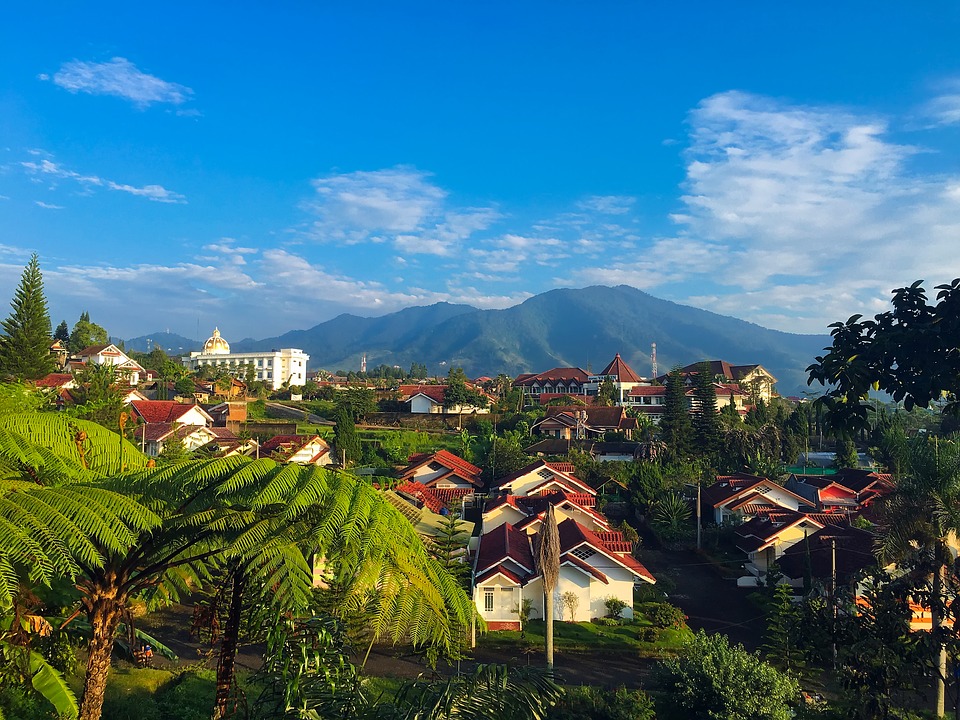
Women’s Rights
Anna says: This one’s complicated. Indonesia is, in many places, pretty patriarchal. While it can get sticky discussing Islam, women do cover up in ways and behave in ways men don’t have to. Some of it — mainly the modest dress and sitting behind men in the mosque — can be attributed to religious custom. Others seem to be more local, like women — not just Muslim women but Christian and others— typically don’t go out very late in my city or even go out that much alone while men gallivant all over and at all times.
More on Women's Rights
On the flipside, this depends a lot on where you are. Even if I couldn’t get out that late compared to my male friends, I went out a lot later and more frequently than my female friends in more rural areas. And, I met tons of women throughout my time here, and what do you know? They’re all very different. Most of my friends were university-educated, working, and quite independent. Quite a few of them went out late, drank, smoked, had boyfriends, and argued with their (many) male friends.
Other women I met were quieter and more conservative, maybe more family-focused, but they too had university degrees and full-time jobs. Then, there were women like my ex-host-mother who wore hijab, was a devout Muslim, studied Arabic, ran multiple independent businesses, and was seen as a leader in her neighborhood, whom many, including men, deferred to. And, most of my female students, even if they were amazed that I liked to go out by myself and rode ojeks (motorcycle taxis) and traveled a lot independently, generally expected that they would enter university and have careers.
So, a mixed bag. Indonesia’s not a feminist utopia, but then I’m not sure one exists. It’s a rapidly changing society that differs wildly, place to place. If you visit, I’d err on the side of conservatism, especially outside foreigner-heavy spots like Bali, Jogjakarta, and Jakarta, but the country may surprise you.
Winona says: Generally I don’t think there’s any serious social segregation. All the women I met were very ambitious and felt free to aspire to do what they want. However, I’m sure in rural areas genders are more divided.
Local Women
Anna says: Indonesia is very communal and religious, so as a introvert and someone who’s mildly religious at best, I definitely stood out.
People still have difficult understanding why I like to eat and drink coffee and go to movies alone. Depending on which group of women I was with, my style of dress and behavior could definitely stand out. At work, I was always getting gently reprimanded for my dress (either too tight or too short or revealing skin I wasn’t supposed to — even if I thought I was decent enough in long sleeves and long pants or skirt) and people were shocked by my loud, somewhat clumsy mien and habit of wearing pants and running off on motorcycle taxis. I was called a tomboy a lot.
More on Local Women
But then, the other women in work could get pretty loud (Palembangers are loud people in general; a lot of conversations sound like screaming. This is normal). EVERYONE drives a motorbike, including middle-aged and elderly housewives (it was just weird that I went off on motorcycle taxis alone all the time). And, with my younger, university friends, I fit in just fine.
Winona says: Local women are often Muslim, or at least raised in a Islamic culture. They tend to cover up more and dress more conservatively than foreign women.
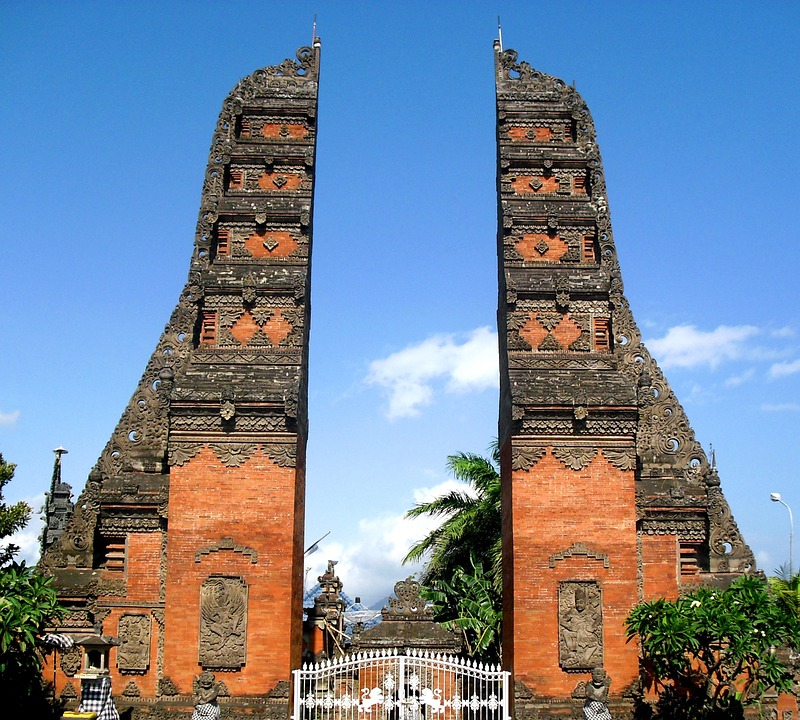
Women-Specific Environments
Anna says: Mosques are separated inside by gender, and I know for some special feasts, if a woman was on her period, she didn’t go to the mosque with the others. I was also cautioned about entering spaces, like certain warungs or activities, that were primarily frequented by men for safety reasons. I made the mistake of going into such a warung on my street, and now the men feel free to catcall me all the time whenever I pass. They haven’t tried anything, but it does make the simple act of walking down my street aggravating.
More on Women-Specific Environments
There are a few gender-segregated schools, though I have no personal experience with them. Public education is generally co-educational, though some classrooms are pretty separated down the line by gender. It can get awkward if boys work with girls, though my schools haven’t been like that, beyond adolescent awkwardness.
There are many spas and salons that are catered only to women, which are wonderful. And generally, people do socialize within their genders, so I spent a lot of time in traditional markets, the pasar, where women definitely reign (even if men are there). I learned to bargain from the female teachers at my school!
Winona says: Mosques and prayer halls have separate areas for women and men. Some spas and massage places are women only.
Perception of Foreign Women
Anna says: Well, I’m not white and am of Southeast Asian descent, so I get a lot of disbelieving reactions when I tell people I’m American. Some people get it eventually; some never do. I had a taxi driver once say to my face that he didn’t believe me, and I gave him the cold shoulder after that. For foreign women of color, it’s up to you on how you manage it; I am less patient than I was last year. Now I shortly say, “I was born in America but my parents immigrated from the Philippines.” If it’s a student or a polite curious person or friend, I may explain more, but for people who push it, I refuse to engage.
More on Perception of Foreign Women
American women are generally seen as being freer, more tomboyish, and often, more promiscuous; that is mostly from movies, music, and TV, I suspect. How this shows in treatment of foreign women varies; some are pretty forgiving of my foibles as a result. I do get corrected in my behavior quite a bit, though, mainly for not being aware of my safety or local customs.
Something you may also find frustrating, depending on what capacity you’re in Indonesia for, is people’s attempts to make you safer, as a woman. By this, I mean, people may caution you or downright tell you not to go outside at night, not to walk alone, not to go here and there, and may even try to be the only ones to take you anywhere so you won’t be in danger. Don’t worry; it’s totally possible to have a fairly independent life. I managed it, but you have to be careful and polite in how you get people to understand you’ll be fine.
Winona says: The general stereotype of foreign women is that we are “loose” and love to party. However locals are generally very kind and helpful and welcome your presence in Yogyakarta.
Safety
Transportation
Anna says: I’ve always been told to be wary of buses and angkots. Women definitely use them, but I’ve been told not to go on them alone and with angkots (mini-vans), you definitely need to learn the routes, which can be tricky to do since they’re marked by the color of the vans, and information on routes has been difficult to come by. I’ve never ridden them alone.
More on Transportation
I primarily use ojeks, taxis, and becaks. Bluebird is a reputable taxi company and is based in most major cities. If it’s not a taxi company like that, stick to ones with meters. Or, bargain in advance for the price. I’ve never had a problem with taxis, but definitely be aware of where you’re going. Ojeks, motorcycle taxis, are hit or miss, and you should have a helmet if you plan on using them with any regularity.
As a rule, I never used ojeks after dark and tried to stick to guys I knew were good, safe drivers. Becaks, carts pulled by motorcycle or bicycle, tend to be fine, but it can be a little nerve-wracking being in that little cart on a busy road. I only used them for short distances that were just a little too long to walk.
Winona says: At least in Yogyakarta, taxis are safe to take. I felt comfortable grabbing a cab on my own without worry. The traffic is bad, so scooters or motorcycles can be dangerous, but they’re also the most practical and cheap. I never took buses due to their sporadic schedule and how overcrowded they are.
Shady Areas for Women
Anna says: Certain areas of Indonesia (Aceh, Papua, Central Sulawesi, East Kalimantan) had a lot of upheaval, and I’ve been warned to stay away from them due to ethnic conflict or religious fundamentalism. In Aceh’s case, it has an international reputation due to it being under sharia law and being strict on women as a result. However, I’ve known a number of Western women who’ve ventured into Aceh and Papua and been fine. I’d say exercise caution, check any US State Department advisory, and try to get on-the-ground reports.
Winona says: I felt safe throughout Yogyakarta and was okay walking around after dark on my own. I generally stayed in university and residential areas that were lit.
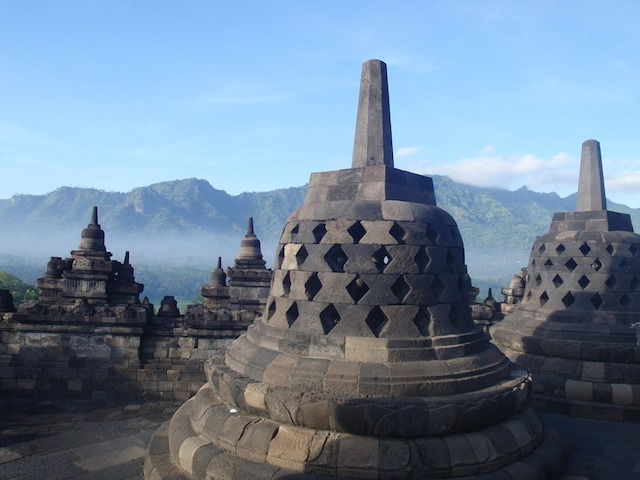
Tips for Women Travelers in Indonesia
Clothing
Anna says: Outside foreigner-heavy areas like Jogjakarta, Bali, and Jakarta, I’d go for modest. Except in mosques, I’ve never been asked to cover my head, but as a rule, keep to longer pants and skirts (at least to the knee), at least short-sleeved shirts, and higher necklines (no cleavage) and then take your cues from the people around you.
More on Clothing
In my city, I’d be confused by seeing women in short dresses, skirts, and shorts and sleeveless blouses and dresses, but I found out later these were mostly Chinese-Indonesians and/or Christians. Since I worked in a majority-Muslim school at first and lived in a Muslim area, I erred on the conservative side. I now work in a school owned by Chinese Christians so there I dress a bit more casually. I also work in a mostly Muslim middle school so I dress more conservatively and formally there.
Winona says: Skirts, dresses, pants, and shorts above the knees are not practical outside of expat areas. Keep shoulders covered, but otherwise short sleeves are okay. The closer you are to Malioboro the less conservatively you need to dress. Locals are usually in long pants or skirts and at least 3/4 length sleeves.
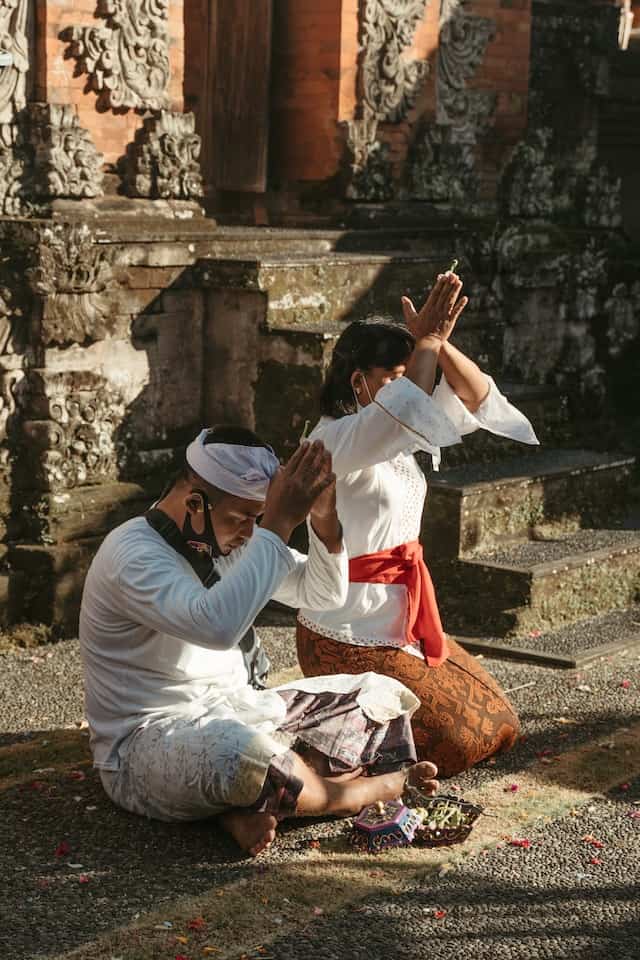
Tips for Women Travelers in Indonesia photo credits by Jessica Shen and Unsplash.

One thought on “Tips for Women Travelers in Indonesia”